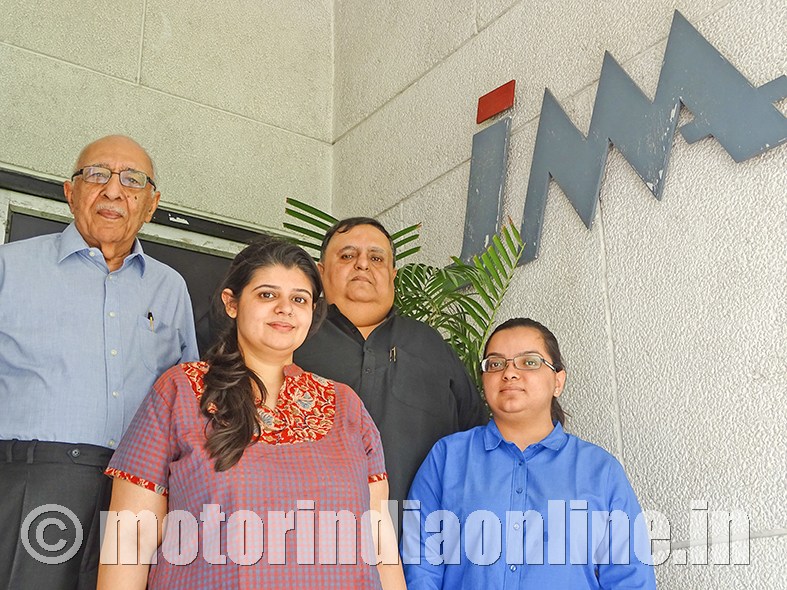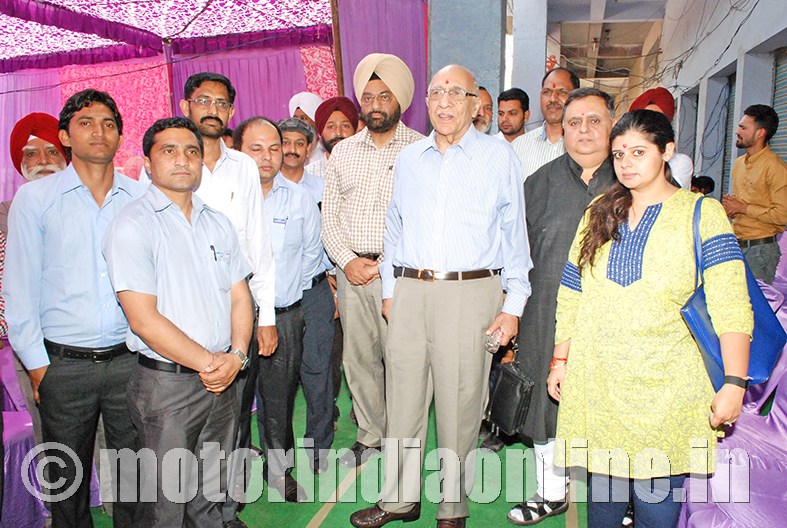Jullundur Motor Agency (JMA), one of India’s leading automotive spareparts distribution houses is jacking up its business base in automotive electronics ancillaries for passenger cars and targets CV fleets to address the changing market and consumer preferences.

The realities and dynamics of India’s vast automotive aftermarket business often remain an untold story. Perhaps more likely because the sector is largely unorganized and trading doesn’t necessarily happen in air-conditioned chambers. Local manufacturing of automotive components has scaled up unprecedentedly in the country, so does their consumption in the domestic aftermarket, resulting in rapid growth for the sector in terms of volumes.
Yet, the darker side of the picture reveals that the aftermarket industry is reeling under lower price margins and market competition opening up from myriad sources. The market is getting increasingly consolidated, but is lacking sustainability according to experts. E-commerce is another turbulent weather that the sector has to adapt to, while the impact of GST reforms has its own hits and misses in enduring the growth of this industry.
In the business for more than 90 years, JMA Group claims to be witnessing massive transformation in the recent times, something very remarkable since post liberalization in the early 1990s. The changes seem to evoke mixed reactions and emotions among its top executives, leading to a through deliberation within the company on every challenge and opportunity that comes along the way.
Trading channels and market scenario
Headquartered in Gurgaon, JMA was started in 1927 in Amritsar and has since been a renowned distribution firm in the Indian auto ancillary aftermarket. With a strong network of 80 branches across the country, the company’s customer base includes over 75,000-plus retailers, dealers, workshops and service centers, fleets and STUs, etc., with an annual sales figure of Rs. 399.30 crores achieved in 2017-18.
JMA’s principal supply partners include some of the largest automotive conglomerates namely TVS Group, RANE Group, Amalgamations and Anand Group, all home-grown names, Schaeffler Group and Contitech of Germany, WABCO of USA, in addition to other leading auto component firms like Banco India, General Motors, Harison India and Delphi Automotive to name a few. Its product range can be grouped under the following heads – brakes and friction; bearings; clutch and engine components, fan belts, fasteners, lubricants, rubber parts; and steering chassis and suspension components including power steering kits; gear assys. & parts. JMA is also selling its own branded JMA Bearings, JMA Lubes and JMA Cylinder Liners in its network.

As an epitome of business experience, JMA’s MD Mr. Virat Sondhi puts traders and dealers as the heart and soul of the aftermarket trading in the country. “More than 90 per cent of business happens with them, therefore strengthening and upgrading of the trading channel and grass root level agency is important. Traders are the essential link between the products and the consumers”, he says.
But the trading channels in this industry are neglected, their profit margins are eroding consistently, and capital expansion remains largely stagnant, he observes. In the past two-three decades, technology and quality upgradation of auto ancillaries is seeable, their life span has increased, but the cost of the vehicle maintenance and component replacements have soared up too, placing the aftermarket business at a desired level.
Impacts of demonetization and higher GST rates of 28 per cent have also played havoc in this regard. Higher tax rate is also encouraging spurious products to prevail and sustain in the aftermarket. “Traders are reluctant to embrace GST registration and digital payments owing to legacy issues and fear of revenue erosion. Total compliance of the industry to the new tax regime will take some time, as the trading communities and industry become more organized”, feels Mr. Sondhi.
“There is no doubt the market is getting consolidated and highly specialized in terms of availability of spares, but there is absence of sustainable growth”, notes Mr. Deepak Arora, JMD, JMA. He points to the sheer absence of new traders blooming up unlike two decades ago, while bankruptcy instances are higher as well. “The second generation entrepreneurs are reluctant to take up this business owing to lack of sophistication, slimmer turnovers and market competition in aftermarket trading.
Interestingly, JMA Group is now witnessing fifth generation leadership with the advent of Ms. Aditi Arora Malik and Ms. Aashna Arora, daughters of Mr. Arora and granddaughters of Mr. Sondhi. Currently the President of the group, Ms. Aditi sees manpower as the biggest managerial challenge in the aftermarket business. “Getting the right person at different levels in the entire trading chain is difficult, considering the lowering margins in mind”, she says.
Opportunities amidst challenges
Says Mr. Arora: “The demand for auto consumables is great. We foresee growth coming just because of the number of vehicles going up on road”. Ms. Aditi corroborates her father’s claim while adding that the buying potential in smaller towns is phenomenal. She drew attention to JMA’s recently opened retailer branch in Tinsukia, Assam, to drive her point on growing consumption and shift towards smaller markets.
The company is planning to add more branches and outlets in the coming years, with focus on more sophisticated ‘mall-like’ experience and value-added services to its customers and end users. “With more and more vehicles donning electronics, it makes perfect sense for us to add electronic components for passenger cars to our product portfolio. As far as CVs are concerned, products like tracking systems and fleet management hardware will receive additional attention”, said the JMD.
JMA is targeting large fleets and transport operators with a specialized department and workforce for the purpose. “Many fleets have approached us, and we work with some of them too. They care about TCO of their operations, so are no more reluctant to spend on timely essential consumables like brakes and clutch components, lubricants, filters, etc.”, claims Mr. Deepak Arora, while acknowledging that the proposed talks on scrappage policy for commercial trucks is a bit of inevitable dampener for the aftermarket.
Asked whether e-commerce is a new face of destiny for the aftermarket industry, JMA feels that online platforms and trading is best suited only for those auto components that customers of technically aware of and has the know-how to use them effectively in their vehicles. “The concept of DIY (Do-it-yourself) is hardly found among Indian automotive users except for select non-technical consumables, thereby relying on workshops and service centers to replace or fix spares. Those service centers still largely rely on traditional trading networks and logistics to source components for their customers”, notes Ms. Aditi Arora.
She adds that the trading ambience is getting affected with the advent of online sellers, although the market is yet to mature to shift to e-commerce to a large extent. “We do acknowledge that might become a great business avenue for JMA in future, we can better organize our network with central warehouses and lean trading channels”, claims Ms. Aditi. JMA has also established a separate e-commerce portal for online trading of its catalogued products, bus it has met with little success as per the company.
Mr. Deepak Arora takes pride that his group companies are cash-rich and debt-free, enabling his team to take up vibrant efforts and strategies to adapt to changing trends. He reiterates his company’s slogan – “Where challenge is to change, and change is to challenge” – as the fundamental principle that drives his company.